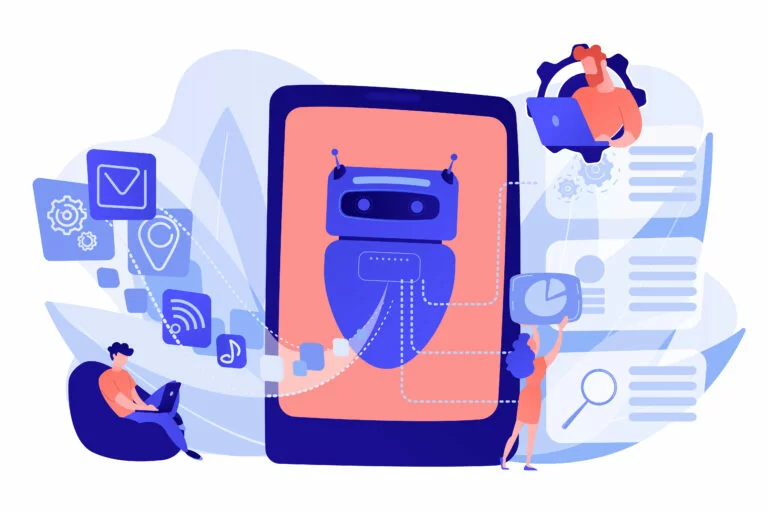Artificial intelligence (AI) has become a buzzword in various industries, including the legal sector. The potential for generative AI to transform the way lawyers work and the delivery of legal services is undeniable. By automating routine tasks and streamlining workflows, AI can increase efficiency, reduce costs, and enhance the overall client experience.
AI refers to the simulation of human intelligence by machines to perform tasks typically done by people. It has evolved over the years through technological advancements and leverages intelligent algorithms to classify, analyze, and make predictions from large amounts of data. In the legal industry, AI has the potential to revolutionize various areas, from legal research and contract analysis to predictive analytics and document management.
However, the question remains: Can lawyers trust AI? This comprehensive guide aims to explore the different aspects of AI in the legal sector, from its evolution and key milestones to its practical applications and benefits. We will also delve into the ethical considerations surrounding AI in law and address the challenges and limitations of its implementation.
The Evolution of AI in the Legal Sector
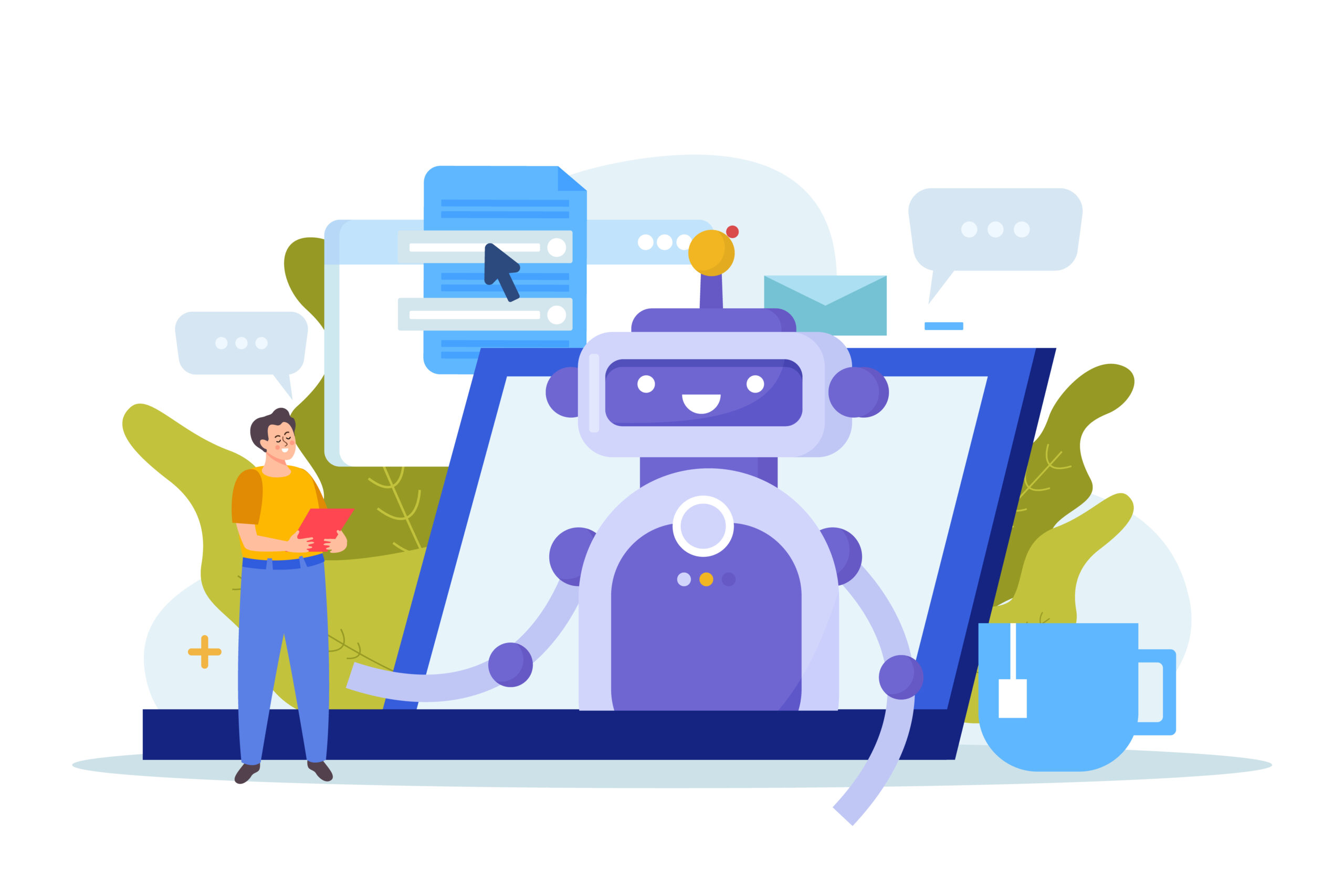
The use of AI in the legal sector has evolved significantly over the years. Initially, AI was primarily used as a research assistant, helping lawyers in their legal research and analysis. However, with advancements in technology, AI has expanded its role in the legal sector. Today, AI is used in various applications, from courtroom simulations to contract drafting and predictive analytics. The integration of AI in the legal industry has the potential to transform the way lawyers work and provide legal services.
From research assistance to courtroom simulations
In the early days of AI in law, the focus was on using AI as a research assistant to help lawyers in their legal research and analysis. AI systems were trained using large datasets to identify patterns in legal data and provide relevant information to lawyers. This enabled lawyers to streamline their research process and save time and effort.
As AI technology advanced, new use cases emerged, including the development of AI systems for courtroom simulations. These simulations allow lawyers to assess different scenarios, prepare for trial, and improve their litigation strategies. AI-powered simulations can provide insights into potential outcomes, helping lawyers make more informed decisions and better serve their clients.
The evolution of AI in the legal sector has paved the way for new technology and applications that can enhance the practice of law and improve client services. From research assistance to courtroom simulations, AI has become an integral part of the legal profession.
Key milestones that shaped AI’s role in law
Several key milestones have shaped AI’s role in the legal sector. One significant milestone is the development of generative AI models, such as ChatGPT, which can generate human-like text and provide valuable insights for legal research and analysis. These generative models have the potential to revolutionize the way lawyers approach legal problems and find innovative solutions.
Another milestone is the availability of significant resources for AI training data. Access to large datasets allows AI systems to learn from a wide range of legal documents, court cases, and precedents, enabling lawyers to conduct more comprehensive research and analysis.
Additionally, advancements in natural language processing (NLP) have made it possible for AI systems to understand and interpret human language, enabling voice assistants and other AI applications to assist lawyers in their daily tasks.
These key milestones have contributed to the growth and adoption of AI in the legal sector, opening up new possibilities for lawyers and transforming the way legal services are delivered.
Related Article: Effectively Use AI In Contract Drafting
AI Bill of Rights: Everything You Need to Know

AI Bill of Rights outlines principles and guidelines aimed at safeguarding individual rights and promoting responsible development and deployment of artificial intelligence (AI) technologies. It emphasizes the need for transparency, fairness, accountability, and privacy protection in AI systems.
Principles for Ethical AI
- AI systems should be designed and deployed with transparency, fairness, and accountability in mind.
- Individuals should have the right to know when they are interacting with an AI system and understand the basis for its decisions.
- AI systems should not discriminate against individuals based on protected characteristics such as race, gender, or disability.
- Developers and operators of AI systems should be accountable for their actions and the outcomes of their systems.
- AI systems should respect individuals’ privacy rights and safeguard their personal data.
Guidelines for Responsible AI Development
- Developers should prioritize safety and reliability in AI systems to minimize the risk of harm to individuals or society.
- AI systems should be designed to promote human well-being and enhance quality of life.
- Ethical considerations should be integrated into all stages of AI system development, from design to deployment.
- Collaboration and information sharing among stakeholders are essential for promoting responsible AI development and addressing potential risks and challenges.
- Regulatory frameworks should be established to ensure compliance with ethical standards and protect individuals’ rights in the AI ecosystem.
The “Blueprint for an AI Bill of Rights” proposes principles and guidelines to ensure the ethical development and deployment of AI technologies, emphasizing transparency, fairness, accountability, and privacy protection. By prioritizing safety, human well-being, and collaboration among stakeholders, the bill aims to promote responsible AI development and protect individuals’ rights in the AI ecosystem.
Related Article: How To Maintain Ethically Use AI In Legal Operations
ChatGPT: Generative AI and Law

One application of generative AI in the legal field is ChatGPT, a large language model developed by OpenAI. ChatGPT uses generative AI techniques to engage in conversational interactions and provide responses.
Generative AI models like ChatGPT can generate human-like text based on input prompts. This can be particularly useful in the legal field, where lawyers often need to draft and review contracts, research legal issues, and communicate with clients.
ChatGPT can assist lawyers in various tasks, such as contract drafting, legal research, and providing answers to legal questions. By leveraging its large language model, ChatGPT can analyze and understand legal documents, extract relevant information, and provide accurate responses to legal queries.
However, it is important to note that while generative AI models like ChatGPT can be valuable tools for lawyers, they should not replace human judgment and expertise. Lawyers should use these tools as aids in their decision-making process, considering the limitations and potential biases associated with AI.
In conclusion, generative AI models like ChatGPT have the potential to enhance legal practice by assisting with contract drafting, legal research, and client communication. However, lawyers must exercise caution and use these tools as supplements to their expertise, ensuring that the ethical considerations and potential limitations of AI are taken into account.
Related Article: Generative AI For Lawyers: Capabilities & Limitations
Practical Applications of AI in Law
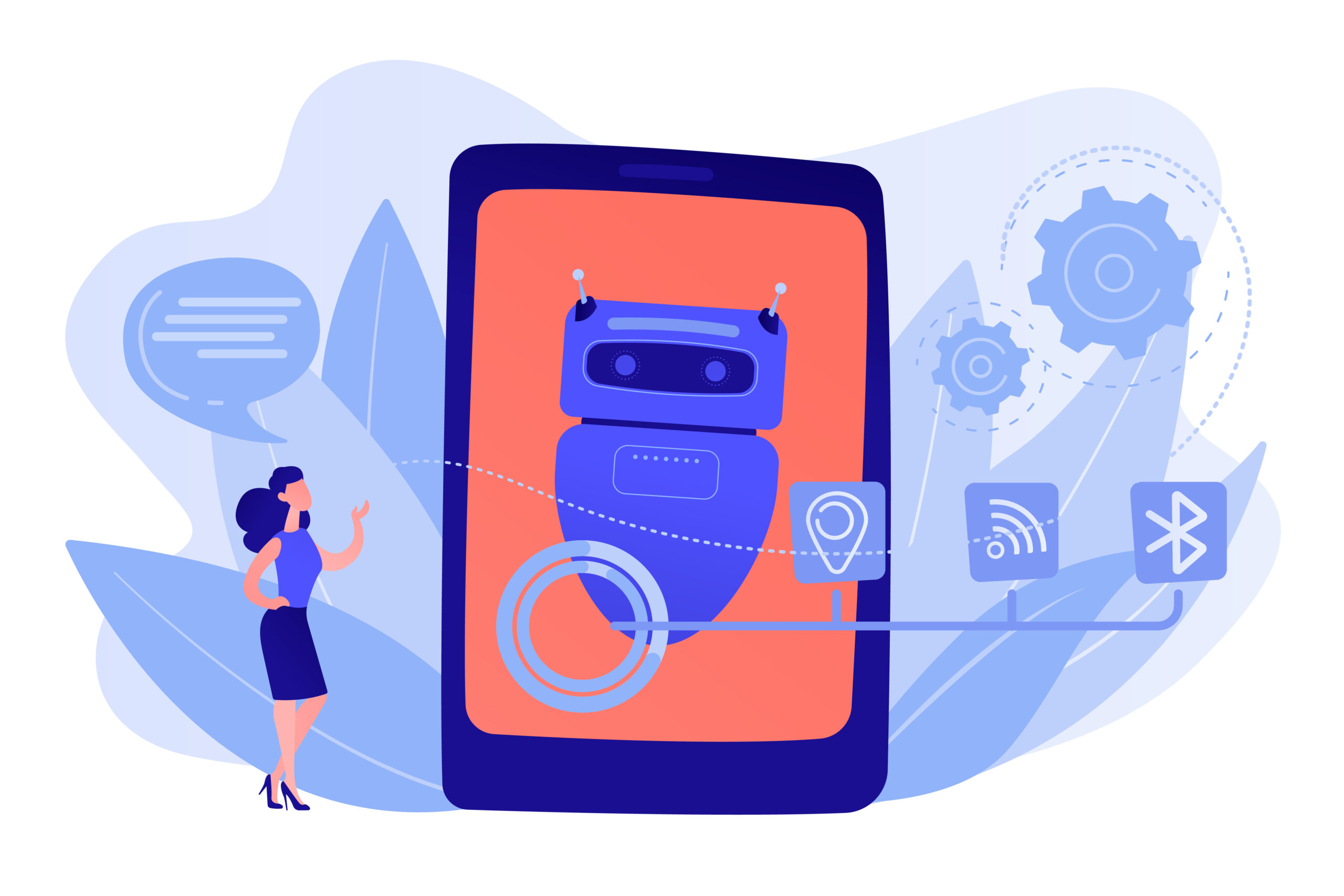
AI has practical applications in various areas of law, including contract drafting, predictive analytics, and machine learning. These technologies can significantly improve efficiency and accuracy in legal practice.
Contract drafting and review
AI can assist lawyers in contract drafting and review by utilizing document analysis and generative artificial intelligence. AI systems can analyze existing contracts, identify potential legal issues, and generate new contract language based on predefined parameters. This streamlines the contract drafting process and reduces the risk of errors or omissions. Additionally, AI can assist in contract review by automatically analyzing large volumes of contracts and highlighting key provisions or potential issues.
Contract Analysis
AI, specifically machine learning, can be utilized for contract analysis. Machine learning algorithms can be trained on large datasets of contracts to identify patterns, analyze language, and extract relevant information. This enables lawyers to quickly and accurately review contracts, identify potential risks, and make informed decisions. AI-powered contract analysis tools can also help identify legal problems or inconsistencies within contracts, allowing for efficient and comprehensive contract review.
Automating legal research
AI, particularly natural language processing and voice assistants can automate legal research. Natural language processing algorithms enable computers to understand, interpret, and analyze large volumes of legal text data. Voice assistants powered by AI can provide instant access to legal information, statutes, case laws, and regulations, saving lawyers significant time and effort in conducting legal research. Additionally, AI can assist in providing technical expertise and guidance on legal matters, making legal research more efficient and accurate.
Predictive analytics in litigation
AI can be used for predictive analytics in litigation, helping lawyers analyze and assess the potential outcomes of legal cases. By leveraging machine learning algorithms, AI can analyze and predict case outcomes based on historical data, client information, and relevant legal factors. This can assist lawyers in making informed decisions, developing litigation strategies, and advising clients on the likelihood of success. However, it is important to consider data protection and ethical concerns when utilizing AI for predictive analytics in litigation. Confidential client information must be protected, and the potential biases of AI models should be addressed.
Related Article: Free CLM Software In 2024: Key Things To Look Out For!
The Benefits of Integrating AI into Legal Practice
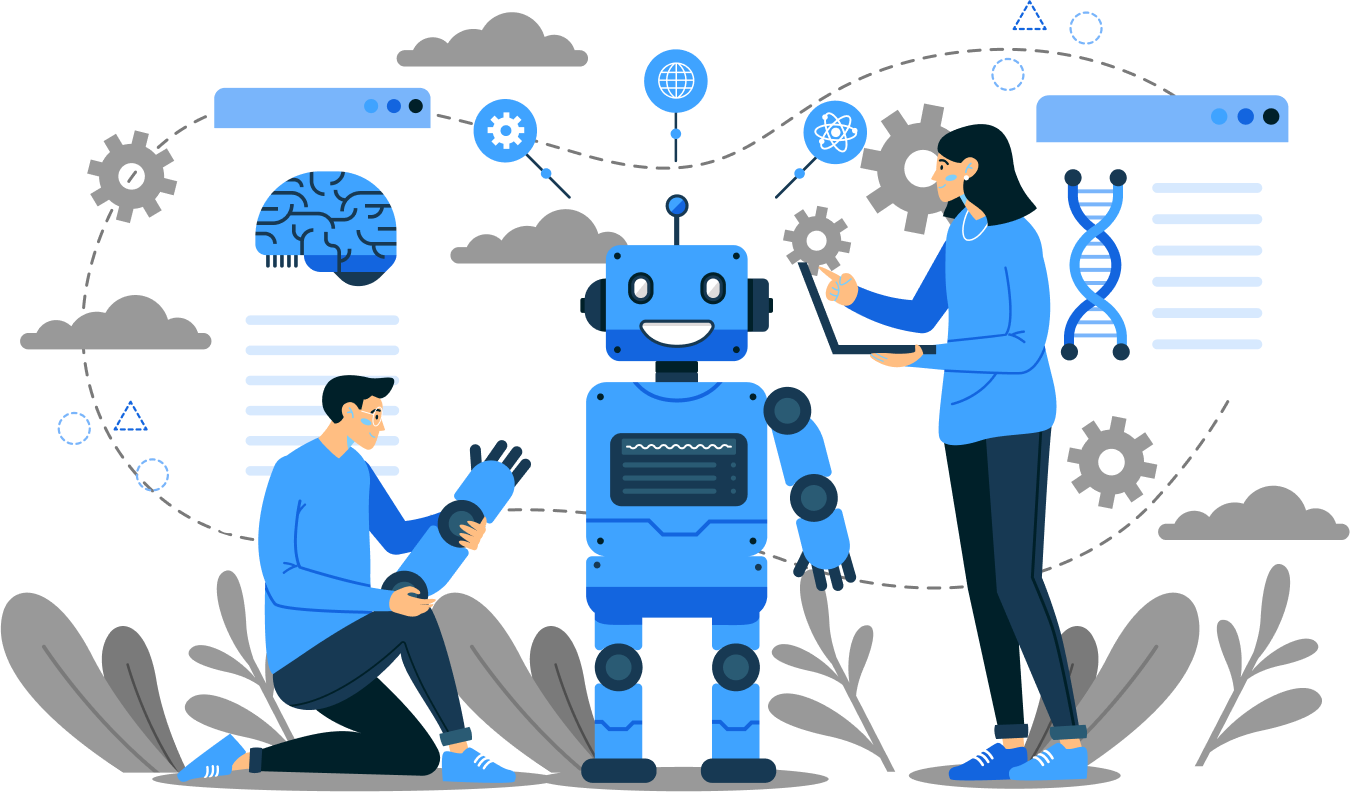
Integrating AI into legal practice offers numerous benefits, including improved efficiency, cost reduction, and enhanced client services. Lawyers can leverage AI tools to automate routine tasks, allowing them to focus more time and energy on providing personalized services to clients. By streamlining workflows and utilizing AI-powered solutions, legal professionals can increase productivity, reduce costs, and deliver better outcomes for their clients.
Enhancing efficiency and accuracy
One of the key benefits of integrating AI into legal practice is enhanced efficiency and accuracy. By automating routine tasks, AI can significantly reduce the time and effort spent on manual processes. This includes tasks such as contract drafting, legal research, and document analysis. AI-powered tools can analyze large volumes of data, identify patterns, and provide accurate recommendations, enabling lawyers to work more efficiently and make informed decisions. By leveraging AI technology, legal professionals can save time, increase productivity, and enhance the overall practice of law.
Reducing costs and improving client services
Another benefit of integrating AI into legal practice is cost reduction and improved client services. AI-powered solutions can automate repetitive tasks, eliminating the need for manual labor and reducing costs associated with administrative work. This allows lawyers to allocate more resources to providing high-quality services to their clients. Additionally, AI can streamline processes and improve the accuracy of legal work, minimizing errors and potential risks. By leveraging AI technology, law firms can deliver more efficient, cost-effective, and client-centric services, enhancing client satisfaction and strengthening their competitive edge in the market.
Related Article: How To Use AI For Contract Management: An Effective Guide
AI and Law: What are the Ethical Considerations?
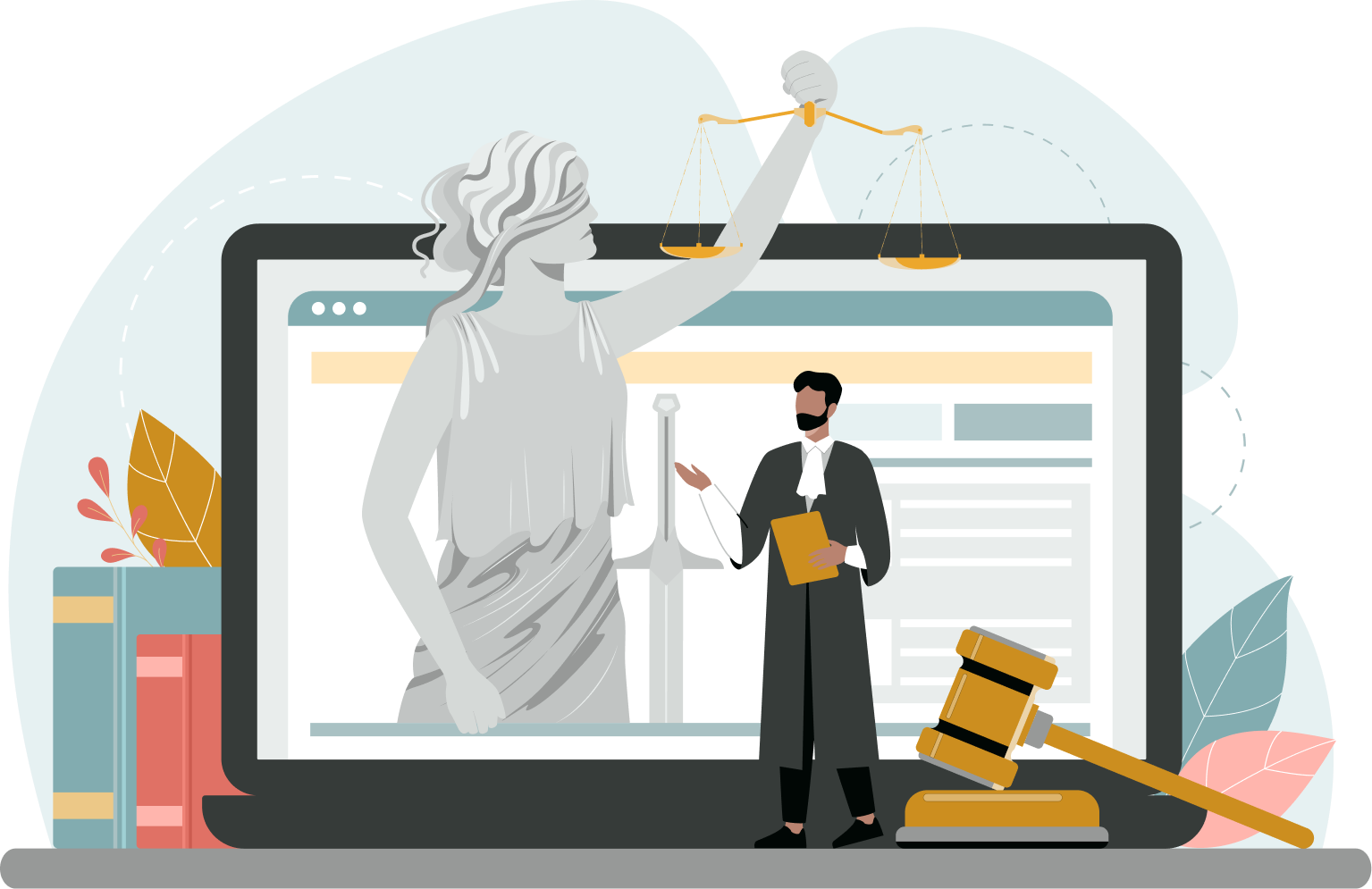
The use of AI in the legal industry raises ethical considerations that must be addressed. These include data protection, moral implications, and client confidentiality. It is essential to ensure that confidential data and client information are adequately protected when utilizing AI systems. Additionally, the potential biases of AI algorithms and the moral implications of AI decision-making should be carefully considered. Ethical guidelines and best practices need to be established to navigate the ethical challenges associated with AI in the legal profession.
Ensuring data protection and client confidentiality
Data protection and client confidentiality are paramount when integrating AI into legal practice. AI systems must adhere to strict security measures to safeguard confidential data and ensure client privacy. This includes secure storage and transmission of data, encryption protocols, and access controls. Moreover, ethical considerations and legal obligations regarding the use and storage of client information must be taken into account. It is essential for law firms to implement robust data protection policies and procedures and to choose AI vendors that prioritize data security and privacy.
Navigating the moral implications of AI in law
AI in law poses moral implications that require careful consideration. AI algorithms can inadvertently perpetuate biases present in training data, leading to unfair outcomes or discriminatory practices. Legal professionals must be aware of these biases and take steps to mitigate them. Additionally, the use of AI in decision-making processes raises questions about accountability and transparency. Ethical guidelines and best practices should be developed to address these moral implications and ensure that AI is used responsibly and with human oversight.
Related Article: How To Digitize Your Physical Contracts?
Overcoming Challenges and Limitations of AI in Law

While AI offers numerous benefits to the legal industry, some challenges and limitations need to be addressed. These include bias, fairness, and the fear of job displacement among lawyers. It is crucial to tackle biases in AI algorithms and ensure fairness in decision-making processes. Additionally, the fear of job displacement can be mitigated by emphasizing the complementary role of AI in legal practice and highlighting the unique value that human intelligence and expertise bring to the profession.
Tackling bias and ensuring fairness
Bias in AI algorithms is a significant challenge that needs to be addressed in the legal industry. AI systems can inadvertently perpetuate biases present in training data, leading to unfair outcomes or discriminatory practices. It is crucial to develop and implement techniques to identify and mitigate biases in AI models. This includes diverse and representative training data, regular audits of AI systems, and ongoing monitoring for potential biases. Transparency and accountability are also essential to ensure fairness in AI decision-making processes.
Can Lawyers trust AI?
The fear of job displacement among lawyers is a valid concern when it comes to the integration of AI into legal practice. However, it is important to recognize that AI should be seen as a tool to augment and enhance the work of lawyers, rather than replace them. AI can automate routine tasks and provide valuable insights, allowing lawyers to focus on more complex and high-value work. Furthermore, the legal profession requires human intelligence, critical thinking, and judgment in areas that AI cannot replicate. By embracing AI and leveraging its capabilities, lawyers can adapt to the changing landscape of the legal profession and provide enhanced services to their clients.
Related Article: Best Contract Management Software: Top 10 CLM In 2024
Frequently Asked Questions
Can AI fully replace human lawyers?
AI cannot fully replace human lawyers. While AI can automate routine tasks and provide valuable insights, the practice of law requires human intelligence, critical thinking, and judgment. Lawyers play a crucial role in interpreting complex legal issues, providing personalized advice, and navigating ethical considerations.
How is artificial intelligence being used in the legal field?
Artificial intelligence is being used in various ways in the legal field, including legal research, document analysis, contract drafting, and predictive analytics. AI-powered tools can automate repetitive tasks, analyze large volumes of data, and provide valuable insights, improving efficiency and accuracy in legal practice.
Are there any ethical concerns associated with using AI in the legal profession?
Yes, there are ethical concerns associated with using AI in the legal profession. These include data protection, biases in AI algorithms, and the moral implications of AI decision-making. It is important to establish ethical guidelines and best practices to address these concerns and ensure responsible and ethical use of AI.
What are some benefits of using AI in legal practice?
The benefits of using AI in legal practice include increased efficiency, cost reduction, and improved client services. AI can automate routine tasks, allowing lawyers to focus on more complex and high-value work. It can also provide valuable insights and enhance the overall practice of law.
Conclusion
In conclusion, the integration of AI in the legal sector marks a significant advancement, offering numerous benefits such as enhanced efficiency, cost reduction, and improved client services. As AI continues to evolve, from research assistance to predictive analytics in litigation, it is crucial to address ethical considerations like data protection and fairness. Despite challenges such as bias and job displacement concerns, AI presents transformative opportunities for legal practice. By understanding the evolution, practical applications, and ethical implications of AI in law, lawyers can harness its potential while upholding professional standards and client trust.
